The Port of Virginia® is one of the most modern and efficient shipping gateways in the Western Hemisphere, responsible for processing more than 3.4 million twenty-foot equivalent units (TEUs) per year. With its deep waters and central U.S. East Coast location, it connects global shippers to U.S. markets while playing a vital role in the nation's supply chain.
To keep pace with growing demand, The Port of Virginia set out to modernize its communications network and power the advanced cargo handling systems required to meet the changing needs of shippers.
"Delivering best-in-class capability and service levels is critical to our mission," said Stephen A. Edwards, CEO and executive director of the Virginia Port Authority, the state authority that owns and operates the six terminals that comprise The Port of Virginia. "The industry is modernizing quickly, and we must have the systems in place to support our growth. The systems must be robust, flexible and secure enough to support those changes that will impact us."
But to develop those capabilities and keep pace with industry modernization, the port needed a powerful, ultrafast wireless network.
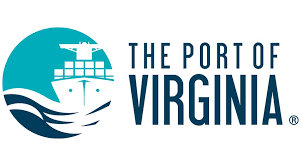
Outgrowing a legacy infrastructure
Like most container terminals, The Port of Virginia has traditionally relied on a combination of WiFi for network applications and VHF/UHF radio channels for voice communications.
However, these systems struggled to keep up with The Port of Virginia's ever-changing environment. In just minutes, what was a clear line-of-site can be suddenly obscured by a 70-foot-tall steel wall of containers. For truck drivers and crane operators, that meant unreliable communications during critical moments of coordination or the limited ability to call for help in an emergency.
While its radio channel voice frequencies were licensed, The Port of Virginia struggled to prevent access by unauthorized users. Truck drivers frequently complained about nearby taxi drivers using the same channels as container-truck traffic. And with limited cell phone coverage in the marine terminals, calls between truck drivers and terminal employees often dropped unexpectedly. This was more than an inconvenience—it was a safety issue if employees couldn't reach emergency services, especially during a hurricane or other severe weather event.
Rich Ceci, Senior VP of Technology and Projects at The Port of Virginia had an ambitious goal. He wanted to develop "the most modern container terminal in the Western Hemisphere." To achieve this goal, Ceci knew he needed to build a more secure, high-performance communications network to better serve the thousands of people working in the facility each day while supporting its advanced cargo-handling systems.
"We employ modern systems and equipment to move cargo containers more efficiently, create greater density in our existing footprint, get containers moving more quickly, and enable constant, secure communication," said Ceci. "Not only can the port absorb more cargo, it can also process it and store it faster than a conventional terminal. The result is an efficient and consistent flow of ships, cargo, trucks and trains. But we are always looking for ways to do those things better."
.jpg?format=auto)
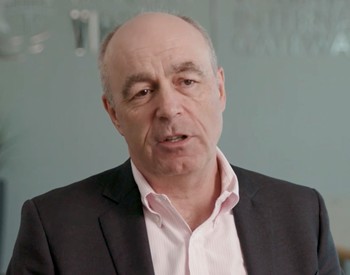
Delivering best-in-class capability and service levels is critical to our mission.
Stephen A. Edwards, CEO and Executive Director of The Port of Virginia
Choosing a Private 5G Network
To meet the demands of its busy and growing operations, The Port of Virginia partnered with Verizon to deploy a Private 5G Network across its terminals. The network combines 5G Ultra Wideband small cells with an LTE packet core and supporting radios, providing compatibility with a wide range of both LTE and 5G devices.
Eric McClanahan, Senior Director of 5G Enterprise Architecture and Engineering for Verizon Business saw the potential. "When we had the opportunity to sit down with the port team to understand the work it's done over the past two decades, it blew our minds," he said. "The port is highly sophisticated, and had a vision to build the next generation of infrastructure that could serve a new set of use cases."
With near real-time capabilities, the Private 5G Network gives the port a scalable, high-bandwidth solution that can keep multiple cargo conveyance systems connected and on-task. Furthermore, it will support new data and voice applications that can produce safer, more efficient ways of doing business.
"We wanted something on-terminal that would be extensible to multiple uses," Ceci said. "With a Private 5G network, truck drivers can use public 5G when on the road and then switch to our private network when they enter the terminal."
The spectrum is private and licensed, delivering a powerful, reliable network without having to worry about slowdowns in bandwidth or channel competition due to the nearby U.S. Navy and U.S. Coast Guard facilities if non-dedicated spectrum such as CBRS is used.
"When you have a mission-critical operation like a port, you cannot risk operating an unlicensed band where you're competing with someone else or dealing with potential channel interference," McClanahan said. "Being able to deliver a private, dedicated and secure on-premises network was critical to the success of their project."
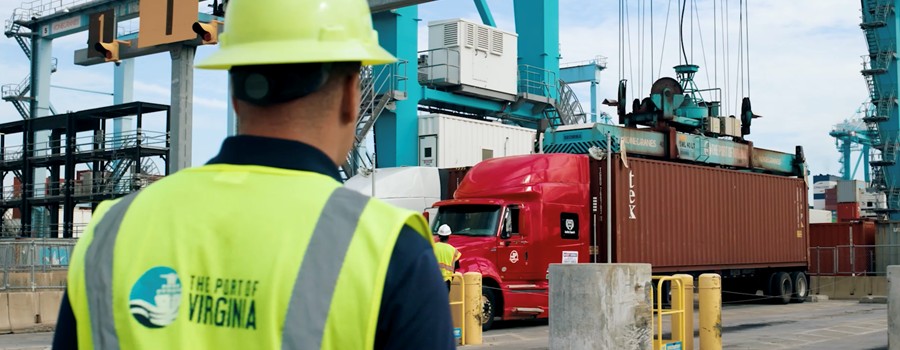
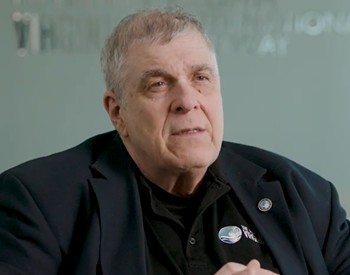
Verizon has demonstrated leadership in maintaining access as technology evolves. In essence, we have built a future-proof solution to all of our on-terminal wireless communications needs.
Rich Ceci, Senior Vice President of Technology and Projects at The Port of Virginia
Scaling safely and efficiently for the future
With its Private 5G Network in place, The Port of Virginia became the first port in the United States to leverage a Verizon Private 5G Network to power its operations. The network now delivers consistent connectivity for workers, truck drivers, and Internet of Things (IoT)-powered equipment.
The partnership with Verizon has been crucial to helping The Port of Virginia scale for the future.
"We had a very solid, consistent Verizon team throughout the project," Ceci said. "They focused on the details early on so that when it came time to implement the on-site 5G solution it would fit seamlessly with our operations. Verizon has been a great teammate in this project. Because this technology is so new, they helped us define what the pilot solution should look like. We believe this technology will allow us to replace our Wi-Fi network while powering other use cases like push-to-talk."
Since implementing the network in 2024, The Port of Virginia has strengthened its ability to move cargo safely and efficiently while scaling to meet rising demand. Joseph Harris, Port of Virginia Senior Director of Communications, noted that leveraging technology, such as Verizon Private 5G Network, allows them to "maintain our efficiency and service levels at moments of ongoing demand." In the 2025 financial year, the port processed 3.4 million TEUs, including more than 1.1 million containers by truck, 720,000 by rail, and 75,000 by barge, along with 1,700 vessel calls. In addition, the port is in the midst of a $1.4 billion capital investment program to expand and modernize its facility.
With a scalable communications infrastructure powered by Verizon in place and ambitious goals for the future, The Port of Virginia is charting a course to realize its vision of creating America's Most Modern Gateway.
"What we are buying is something that has a managed pathway to future upgrades," Ceci Said. "When 6G comes out, when 7G comes out, Verizon has a way of putting all that in a package. The old stuff works and the new stuff works. That's not something you get without having this kind of solution."
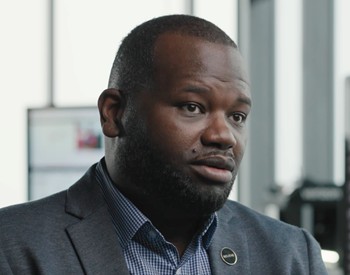
The port is highly sophisticated, and had a vision to build the next generation of infrastructure that could serve a new set of use cases.
Eric McClanahan, Senior Director of 5G Enterprise Architecture and Engineering for Verizon Business
Learn more
Private Wireless Networks
Adapt in real-time, improve productivity, and power innovation—all with flexible, secure network connectivity.
Customer success story
See how Binsky & Snyder is getting reliable coverage at its new 130,000 square foot manufacturing warehouse facility with a flexible Verizon Private Wireless Network.